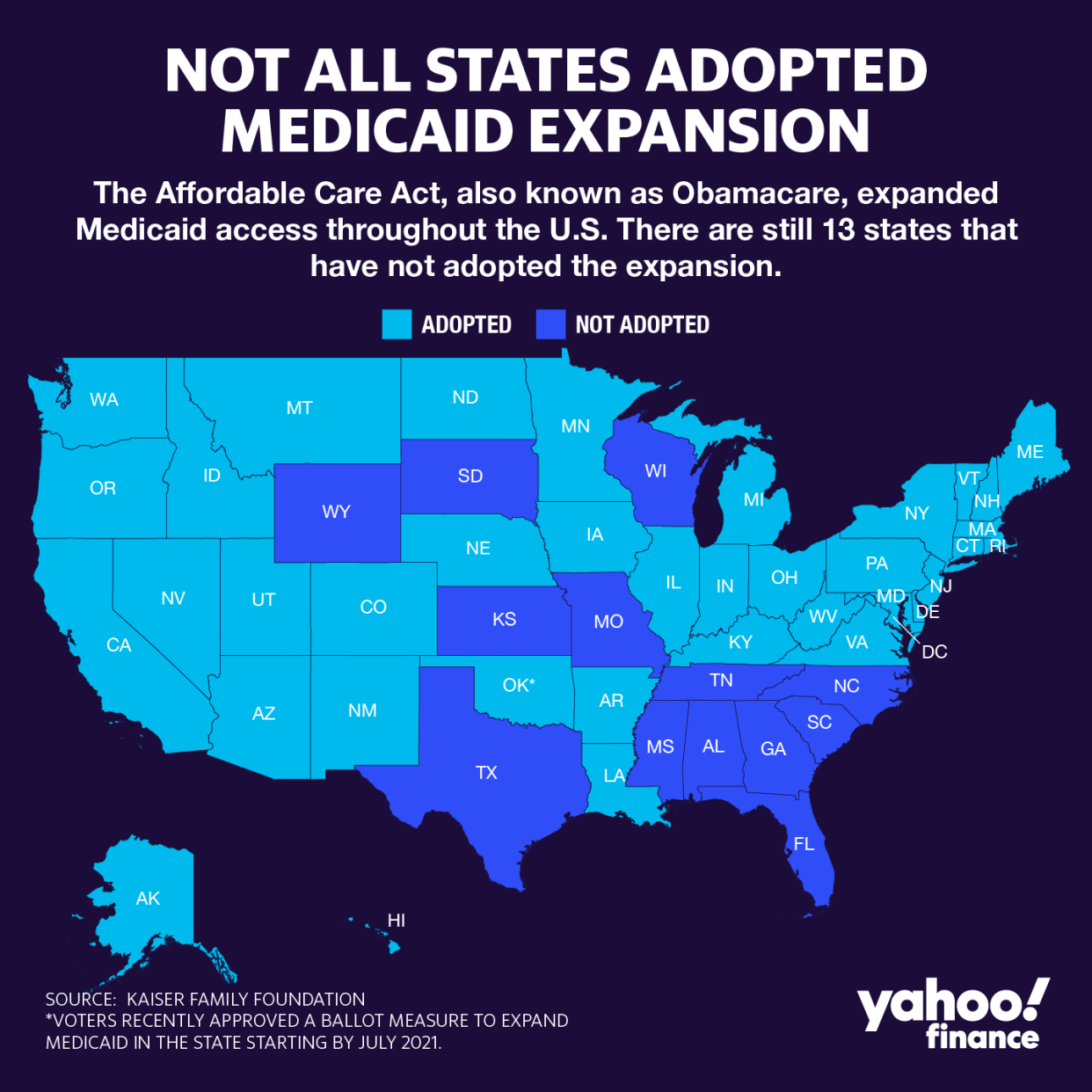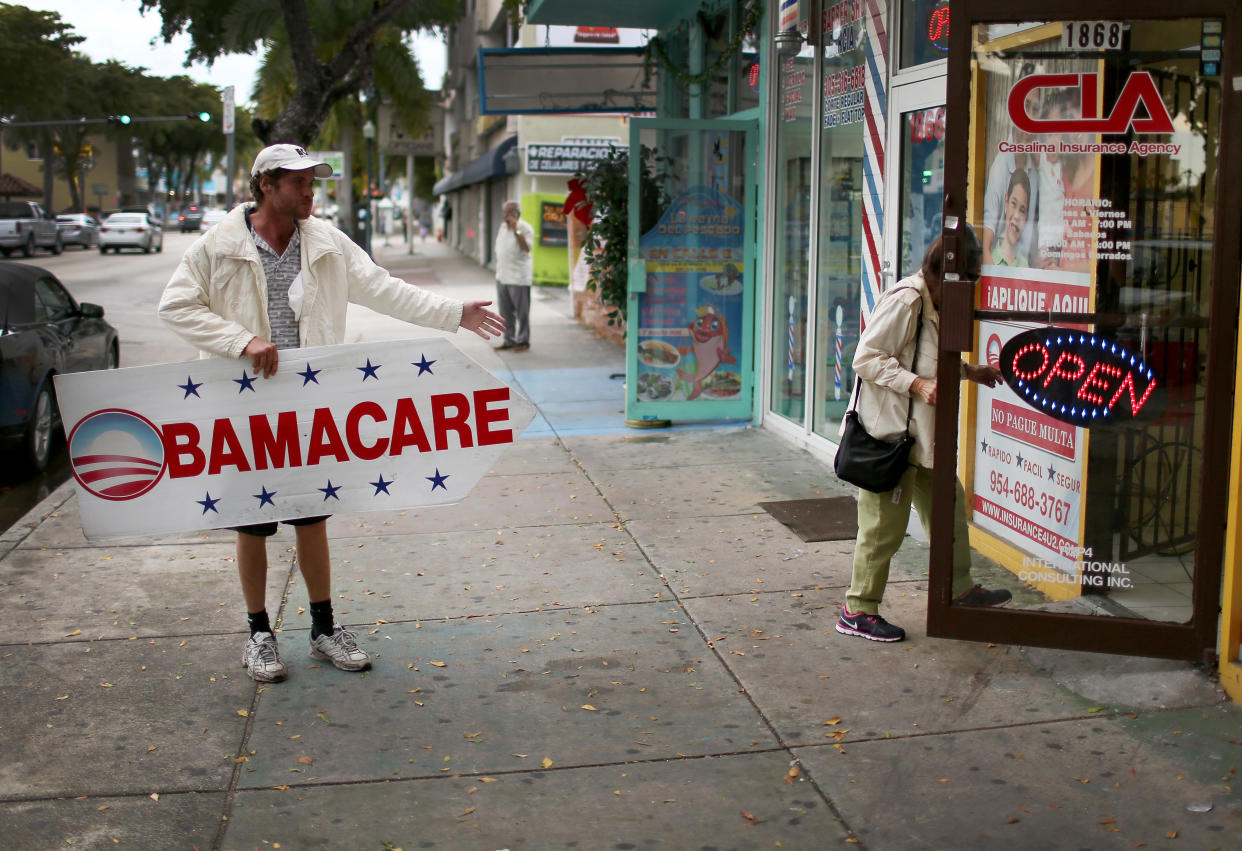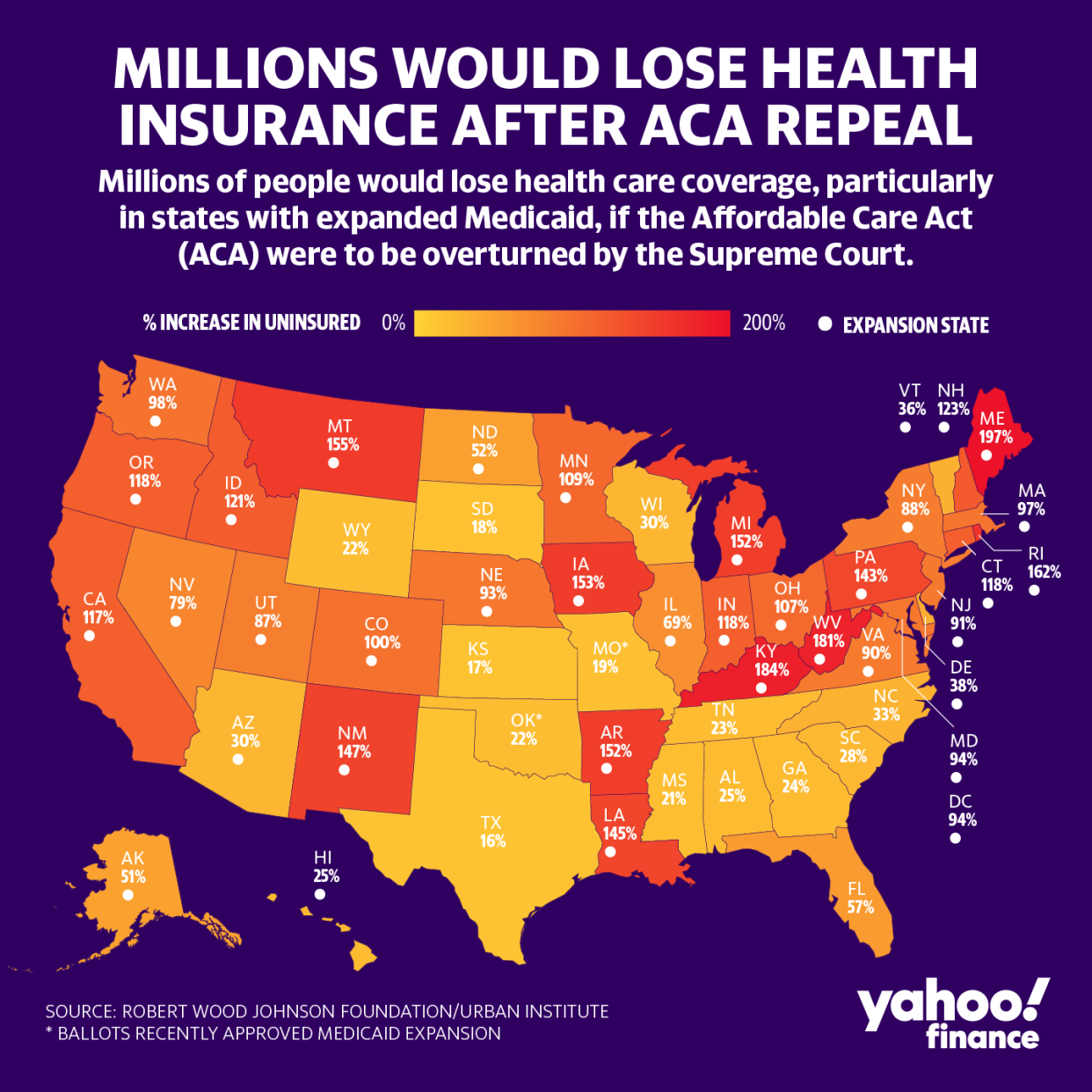Obamacare is key to combating income inequality, study finds
The Affordable Care Act (ACA), the landmark health care bill known as Obamacare, has been a point of contention since it was implemented back in 2010.
The constitutionality of the ACA is currently being argued in the Supreme Court. If the law were to be overturned, an estimated 21 million Americans would lose their health care coverage.
And a new study from Health Affairs found that repealing ACA would also contribute to income inequality by rescinding key benefits to lower-income Americans.
Poorer Americans (who were able to obtain Medicaid through Obamacare) “are better off because their out-of-pocket health spending is reduced and they do not pay private health insurance premiums,” the report found when factoring in government taxes, health care coverage, and tax credits when calculating income.

As a result of Obamacare, the analysis estimated, those in the bottom 10% of income distribution saw their incomes rise by an average of 18.8% of the federal poverty level (FPL). (In 2020, the FPL was $12,670 for an individual, $17,240 for a family of 2, $21,720 for a family of 3, and $26,200 for a family of 4.)
The findings corroborate previous study from the Tax Policy Center found that the ACA has played a major role in keeping low-income Americans from going bankrupt.
‘The Medicaid expansion makes a noticeable difference’
Matt Buettgens, senior fellow at the Urban Institute and one of the authors of the report, said he and his fellow researchers wanted to see what would happen if Obamacare was entirely repealed when factoring in taxes and health care coverage as well.
“It’s not exactly the same as going back to 2013 when the ACA was implemented because a lot has changed since then,” Buettgens told Yahoo Finance. “We constructed a picture with and without the ACA for 2019.”
Those in the bottom 10th percentile in Medicaid expansion states get an estimated 22.4% boost in their income because of the ACA, in comparison to only 11.4% in non-expansion states. Currently, 39 states have adopted the expansion.

“The pattern all the way through is about how the Medicaid expansion makes a noticeable difference just about everywhere,” Buettgens said. “There's a lot of research about other benefits of Medicaid expansion, including some papers that show that it actually saves lives. It actually decreases mortality, which is a very strong, strong result. This sort of adds to that.”
If a person’s income is below 138% of the FPL and their state has adopted the Medicaid expansion, they qualify for Medicaid. And if someone’s income is between 100% and 400% of the federal poverty level, they qualify for premium tax credits that lower their monthly premium.
The premium tax credit is defined by the IRS as “a refundable tax credit designed to help eligible individuals and families with low or moderate income afford health insurance purchased through the health insurance marketplace.”

‘Those with the highest incomes are less well off under the ACA’
There are some exceptions to people’s incomes benefiting from the landmark health care legislation.
While low-income Americans reap several income perks from the ACA, the study found that middle-income Americans gained no income benefit under it: Americans in the 90th percentile of income distribution see only a 0.9% increase in their income as a result of Obamacare.
Part of this is due to the Supplemental Poverty Measure, a key component of the law for the lowest-income individuals. It deducts insurance premiums from income and “incorporates reductions in out-of-pocket spending, but the premium tax credits are not counted as income,” the research stated.
Those in higher-income brackets don’t qualify for ACA programs, so the Supplemental Poverty Measure is not applicable to them.
“Those with the highest incomes are less well off under the ACA because their taxes help pay for the ACA’s benefits,” the study explained, “but their incomes are too high to qualify for those benefits.”

A May 2020 study from the Tax Policy Center that found a repeal of the ACA would bring a major tax cut for the richest Americans. The top 0.1% would receive a tax cut of $198,250 per year, while the top 1% of Americans would see a tax cut of $32,370 with a repeal of the ACA.
“We knew that repealing ACA would be a windfall for the wealthy,” Seth Hanlon, a senior fellow at CAP, previously told Yahoo Finance. “But the magnitude of the tax cut for the top 0.1% — people making $3.8 million and upwards — is still stunning.”
President elect Joe Biden has vowed to raise taxes on wealthy Americans and corporations while also building on Obamacare by expanding Medicaid, lowering drug and insurance prices, and enabling further protections for Americans with preexisting conditions.
Adriana Belmonte is a reporter and editor covering politics and health care policy for Yahoo Finance. You can follow her on Twitter @adrianambells.
READ MORE:
Obamacare 'saved my life': Americans warn how devastating ACA repeal would be
Obamacare repeal would bring a huge tax cut for the rich, research shows
Obamacare repeal would lead to more than 21 million Americans losing health insurance, study finds
Read the latest financial and business news from Yahoo Finance
Follow Yahoo Finance on Twitter, Facebook, Instagram, Flipboard, LinkedIn, YouTube, and reddit.
